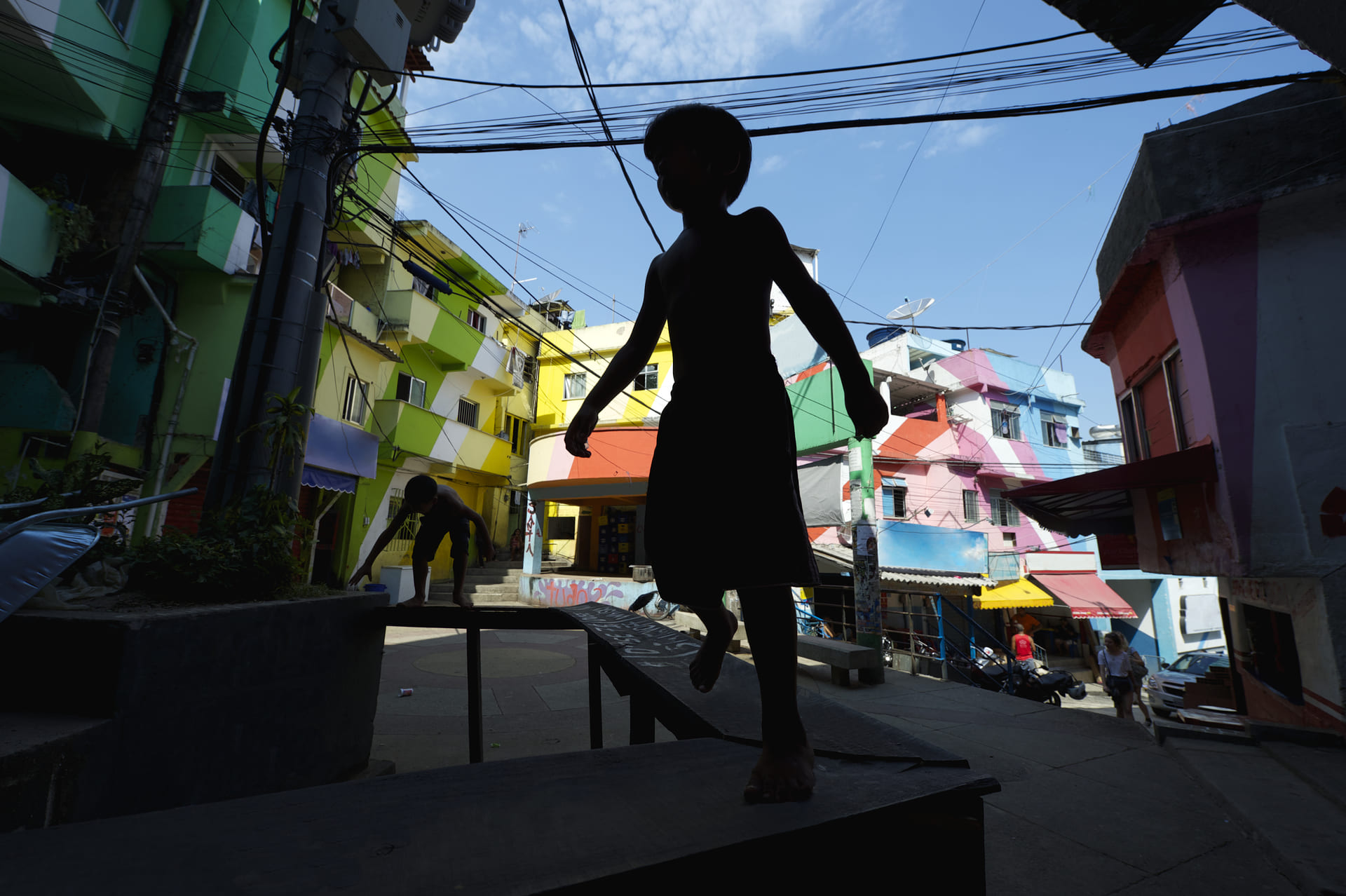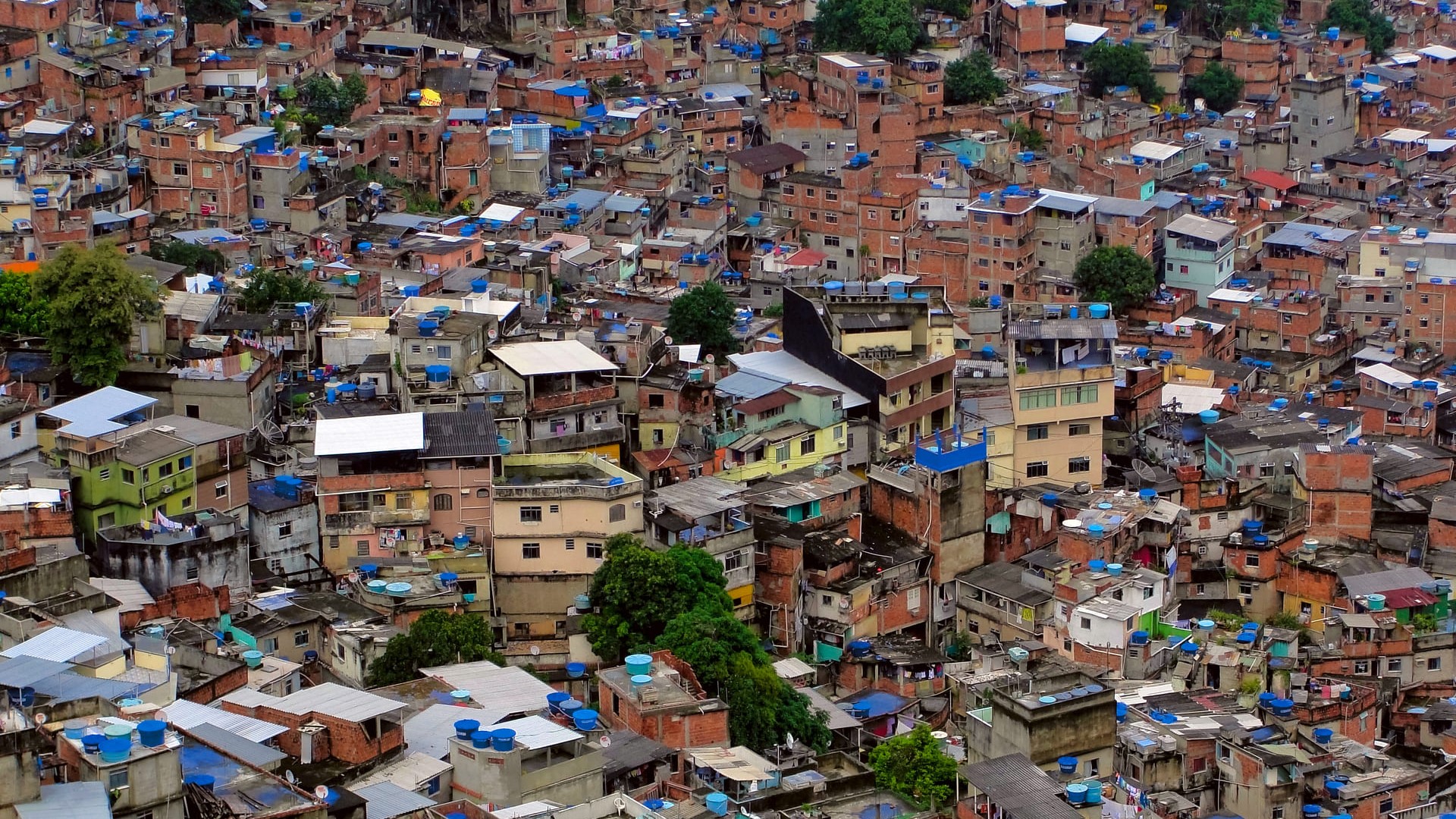Improving informal settlements using social technologies
Brazil's favelas, informal settlements by the poorest, are rich in culture but lack amenities. The 2001 City Statute and 2008 Free Technical Assistance Law aim to improve these areas through better housing and urban development strategies.

Brazil's favela growth and legislative efforts in social housing
The number of slums, or favelas, in Brazil grew as a result of the poorest people in the country building their own, informal housing. These spontaneous ‘urban solutions’ fall outside normal government controls and regulations and can produce areas that are culturally rich and architecturally diverse. However, they generally lack the normal amenities, such as safety, accessibility, sanitation and waste collection, that would make them properly habitable.
The demand for technical assistance for popular housing in Brazil dates back to the 1970s. The approval in 2001 of law 10,257 known as the City Statute, represented a significant step forward for the implementation of new urban development strategies. Likewise, the approval of the Free Technical Assistance Federal Law in 2008 was another favourable move for the production of social housing in the country.
Technical assistance through the development of methodologies
The Housing and Social Urbanization Project and Research Group (OPPHUS-PPGAU/UFF) which works together with the Federal Fluminense University, develops technical advisory actions for informal settlements. Our work aims to highlight the social commitment of the university. Specifically, architectural and urban projects are designed with different demands, which we then use to promote debate on the limits, difficulties and possibilities of technical assistance work in the favelas. In addition, the research group looks at the university’s potential role in developing methodologies that could facilitate better dialogue between residents, technical professionals and students that could then be used to improve building programs and technical assistance actions.
As part of its remit, OPPHUS-PPGAU/UFF investigates how participatory methodologies could be used as part of the design exercises that aim to make living conditions in the favelas better. This participatory approach also improves the social standing of favela dwellers by making them part of the decision-making process. Such practices improve the dialogue around these exercises, making it more likely that dialogue will be followed by concrete actions. Bringing together experts from different disciplines in this way, including architects, urban designers, social workers, psychologists, educators, lawyers, ensures that there is an exchange of knowledge from multiple social, economic and cultural groups.

Playing as a way of thinking about architecture and the city
Through playful workshops, we aim to familiarize the general public, in particular children and youths, with themes related to architecture and cities and how these affect all city dwellers. These playful workshops involve the use of drawings, plants, geometric shapes and models. From these interactions we can get ideas about specific environmental needs, such as sustainability, accessibility, health, and comfort, among others. We then work with the participants to find what actions could be used to solve or improve the issues they helped to identify. These actions are established using a multidisciplinary approach aimed at the development of architectural projects that correspond to the collectively-recognized demands.
Sustainability of informal settlements through technical advisory actions
We realize that the future of free technical advisory services in informal settlements is directly related to the consolidation of social technologies. Such practices have proved to be important catalysts for solutions in inhabited environments, promoting positive changes in housing, sociocultural promotion and economic conditions as well as the materialization of solidarity economy networks. Bringing together multidisciplinary professionals in the way described here is the best way to guarantee that living conditions in these informal housing areas can be improved and that these places prevail as unique cultural centres.
Industrial sectors
- Water supply; sewerage, waste management and remediation activities
- Construction
- Wholesale and retail trade; repair of motor vehicles and motorcycles
- Real estate activities
- Administrative and support service activities
- Public administration and defence; compulsory social security
- Education
- Human health and social work activities
Habitat at the New European Bauhaus Festival and the STI Forum
This story is part of “Habitat: Embracing change in the post-2030 future”. Habitat was discussed at the side event “New habitats for the post-2030 future” during the New European Bauhaus Festival on 10 June 2022. At the STI Forum of 2023, a science policy brief recommendation on Habitat was published under the category “science-policy-society interface”: Enablers for transformative change to sustain people and nature-centred world. Download recommendation >
Contribution to story
- This is “HABITAT: Embracing Change in the Post 2030 Future” Exhibition designed and curated by Dr Sandra Piesik, 3 ideas B.V in collaboration with HABITAT Coalition and VITO
- Copy editing by Katleen Vandormael, Communication Manager G-STIC, VITO
- Cover image: Colorful painted buildings of Favela Santa Marta in Rio de Janeiro (Brazil) with silhouette © lazyllama, Shutterstock
- “HABITAT: Vernacular Architecture for a Changing Planet” published by Thames & Hudson
- “HABITAT: Vernacular Architecture for a Changing Planet” published by Abrams
- “Habitat: Traditionelle Bauweisen für den globalen Wandel” published by DETAIL Special
- “Habiter la planète: Atlas mondial de l'architecture vernaculaire” published by Flammarion First Prize Winner at “J’aime le livre d’art”, Paris 2017
- “HABITAT: Arquitectura vernácula para un planeta cambiante” published by Blume
- “HABITAT: Vernacular Architecture for a Changing Climate’ published by Thames & Hudson UK, USA, and Shufuhsa
